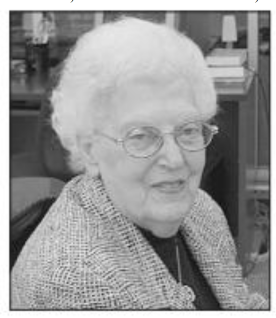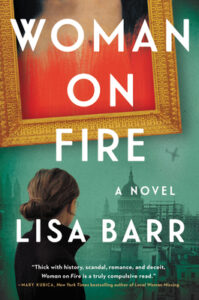The group meets on the 3rd Thursday of the month at 1pm in the Conference Room at the Jewish Federation of Omaha. Contact our Library Specialist by email or phone (402) 334-6464.
 November 15, 1979 marked the debut of the Jewish Federation Library Book Discussion Group, later renamed the “Dorothy Kaplan Book Discussion Group.” In association with the Jewish Federation of Omaha Library, a group of dedicated women, including the late “library diva” Dorothy Kaplan z”l, began the club. It is believed that throughout the country this is the oldest Jewish book group in continuous existence. The group selects books with Jewish content and/or books written by Jewish authors which are designed to appeal to readers of different ages and tastes. With the diversity of topics – everything from poetry and mysteries to science fiction and biographies – and with occasional guest facilitators, including authors, today’s “Dorothy Kaplan Book Group” offers something for everyone. The group welcomes new members.
November 15, 1979 marked the debut of the Jewish Federation Library Book Discussion Group, later renamed the “Dorothy Kaplan Book Discussion Group.” In association with the Jewish Federation of Omaha Library, a group of dedicated women, including the late “library diva” Dorothy Kaplan z”l, began the club. It is believed that throughout the country this is the oldest Jewish book group in continuous existence. The group selects books with Jewish content and/or books written by Jewish authors which are designed to appeal to readers of different ages and tastes. With the diversity of topics – everything from poetry and mysteries to science fiction and biographies – and with occasional guest facilitators, including authors, today’s “Dorothy Kaplan Book Group” offers something for everyone. The group welcomes new members.
The Dorothy Kaplan Book Group meets on the third Thursday of the month at 1pm in the Wiesman Family Reception Room at the Jewish Federation of Omaha. There is no cost to join and there is always an insightful exchange of observations, opinions and critiques during the group meetings.
Contact our Library Specialist by email or phone (402) 334-6464.
November | Woman on Fire by Lisa Barr
 After talking her way into a job with Dan Mansfield, the leading investigative reporter in Chicago, rising young journalist Jules Roth is given an unusual—and very secret—assignment. Dan needs her to locate a painting stolen by the Nazis more than 75 years earlier: legendary Expressionist artist Ernst Engel’s most famous work, Woman on Fire. World-renowned shoe designer Ellis Baum wants this portrait of a beautiful, mysterious woman for deeply personal reasons, and has enlisted Dan’s help to find it. But Jules doesn’t have much time; the famous designer is dying.
After talking her way into a job with Dan Mansfield, the leading investigative reporter in Chicago, rising young journalist Jules Roth is given an unusual—and very secret—assignment. Dan needs her to locate a painting stolen by the Nazis more than 75 years earlier: legendary Expressionist artist Ernst Engel’s most famous work, Woman on Fire. World-renowned shoe designer Ellis Baum wants this portrait of a beautiful, mysterious woman for deeply personal reasons, and has enlisted Dan’s help to find it. But Jules doesn’t have much time; the famous designer is dying.
Meanwhile, in Europe, provocative and powerful Margaux de Laurent also searches for the painting. Heir to her art collector family’s millions, Margaux is a cunning gallerist who gets everything she wants. The only thing standing in her way is Jules. Yet the passionate and determined Jules has unexpected resources of her own, including Adam Baum, Ellis’s grandson. A recovering addict and brilliant artist in his own right, Adam was once in Margaux’s clutches. He knows how ruthless she is, and he’ll do anything to help Jules locate the painting before Margaux gets to it first.
A thrilling tale of secrets, love, and sacrifice that illuminates the destructive cruelty of war and greed and the triumphant power of beauty and love, Woman on Fire tells the story of a remarkable woman and an exquisite work of art that burns bright, moving through hands, hearts, and history.
Dec | The Assignment by Liza Wiemer
Jan | Mr. Perfect on Paper by Jean Meltzer
Feb | The Auschwitz Detective by Jonathan Dunsky
Mar | The Stranger in the Lifeboat by Mitch Albom
May | Not Quite Kosher by Stuart Kaminsky
June | The Dinner Party by Brenda Janowitz
July | The Outside World by Tova Mirvis
August | An Unorthodox Match by Naomi Ragen
September | Fifth Avenue Glamor Girl by Renee Rosen
October | Half Life by Jillian Cantor
Feb | As Close to Us as Breathing by Elizabeth Poliner
Mar | We were the Lucky Ones by Georgia Hunter
May | You and Me and Us by Alison Hammer
Jun | The Yid: A Novel by Paul Goldberg
Jul | Goodnight Nobody by Jennifer Weiner
Aug | The Tattooist of Auschwitz by Heather Morris
Sep | Queen for a Day by Maxine Rosaler
Nov | Ethel Rosenberg: An American Tragedy by Anne Sebba
Dec | A Jewish Girl in Paris by Melanie Levensohn